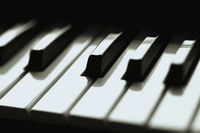Piano Sheets > Charlie Parker Sheet Music > Au Privave (ver. 1) Piano Sheet
Au Privave (ver. 1) by Charlie Parker - Piano Sheets and Free Sheet Music

About the Song
All you need to know about free sheet music The Internet has made it possible for piano enthusiasts to learn how to play piano by using free sheet music available online. There are plenty of websites online, which offer you music notes for playing the piano.
Types of formats
There are various formats available when it comes to online music sheets for the piano. These include GIF, Postscript, finale, graphics interchange, adobe acrobat etc. If you want quick and easy access to sheet music piano then these free websites are the best choice available. Most websites will also have listings based on the genre of music to help you easily select the appropriate category of piano notes.
(More...)
Download this sheet!
About the Artist

Random article
All you need to know about free sheet music The Internet has made it possible for piano enthusiasts to learn how to play piano by using free sheet music available online. There are plenty of websites online, which offer you music notes for playing the piano.
Types of formats
There are various formats available when it comes to online music sheets for the piano. These include GIF, Postscript, finale, graphics interchange, adobe acrobat etc. If you want quick and easy access to sheet music piano then these free websites are the best choice available. Most websites will also have listings based on the genre of music to help you easily select the appropriate category of piano notes.
(More...)
